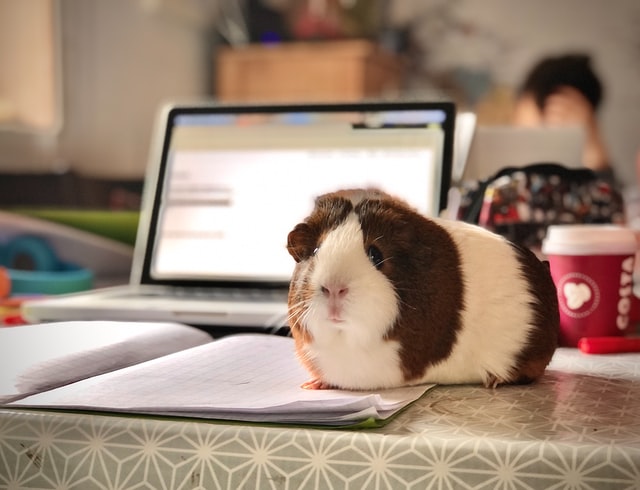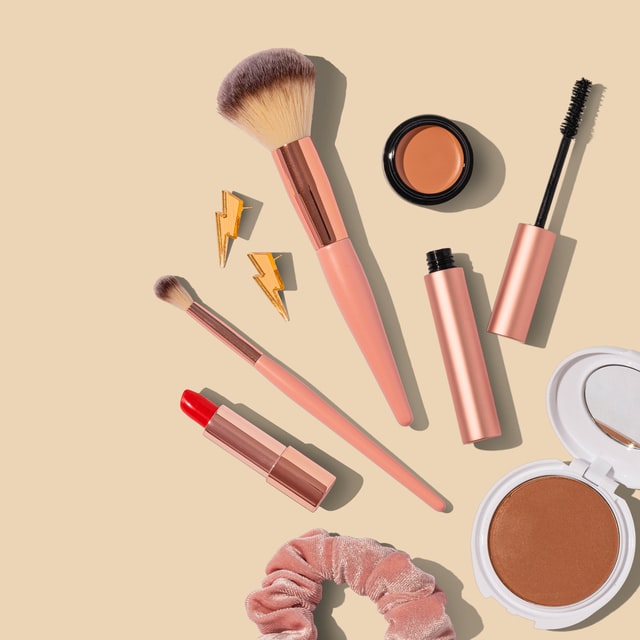How do I avoid distractions and increase focus?
It can be challenging to stay focused on one task when there are so many distractions around.
There is a lot of advice out there for avoiding them, but what’s the best way?
People usually spend less than 50 percent of their time just working. Knowing how to do this is essential if you want to decrease distractions in your studies and job. You’ll also be aware of the tactics for increasing your productivity effectively.
Why it’s so hard to avoid distractions
When you’re working, distractions are everywhere.
You might be tempted by social media, online distractions, or even just your phone. All of this is very accessible and can be pretty time-consuming.
Your attention is a limited resource, and if you’re thinking about something else, it’s tough to be productive.
Every time you switch tasks, it takes between 5 to 20 minutes to get entirely focused again.
Don’t try and do everything at once! When you’re trying to focus on something, make sure that your environment is distraction-free.
Turn off all notifications from your phone or computer, close out any programs that may pop up with updates (like e-mail), and get yourself into a comfortable space without too much noise.
Ways to help you stay focused
Use a Focus app

Phone and computer notifications can distract and make it nearly impossible to focus on the task at hand.
They’ll often pull your attention away from whatever you’re doing and make you lose your concentration. Try turning off all the noise from your computer and cell phone to stay focused when you’re working.
To create a distraction-free zone on your laptop, install Serene with a built-in anti-blocking feature, for example.
It will prevent unnecessary pop-ups, phone calls, text messages, etc., and remove all distractions from your screen. It’s a nifty way to help you get more done in less time.
Multitasking

Another example of distraction occurs when jumping from one job to another.
Doing too much simultaneously is not only time-consuming, but it usually leads to low-quality output.
Quickly checking anything, even for a tenth of a second, may result in a 40% loss of productivity over a day, and it can take us up to 20 minutes to re-enter the zone following task switching.
Try to maintain concentration on one task before moving on to the next.
Avoid working long hours
Overworking yourself is a common issue among students and employees alike.
You spend long hours in the library or at work, but you’re not always getting more work done. For example, staying up until 3 AM to finish an assignment isn’t going to make it any better.
When you’re tired, your brain has trouble focusing, and it’s much more likely that you’ll get distracted.
You might also make mistakes and mess up when you work long hours, which will take even more time and effort to fix. It’s a cycle that puts you at risk for burnout in the long run too.
Protect your energy levels by taking frequent breaks. You can use short exercises or meditation, for example.
Set proper expectations
Let go of unrealistic expectations for yourself! If you’re constantly comparing yourself to geniuses and top performers, then you’ll always feel like a failure.
If you know your goals are achievable and manageable, there’s no reason why you won’t be able to reach them in your daily life!
A study in 2013 showed that people who held unrealistic expectations for themselves were less satisfied with their work than those whose goals were more reasonable.
Use audio aid when possible

Some activities are more complex than others to do in silence. If you’re someone who needs background noise when you work, then try listening to classical music or nature sounds while focusing.
It is a personal preference, though! You’ll have to try different things and see what works best for you.
You can try blocking out distractions by wearing earplugs or using noise-canceling headphones.
It might be worth trying some quiet instrumental songs that aren’t too distracting if you listen to music. You’ll want to find something with slow rhythms that don’t have any lyrics.
Just make sure that the volume is low enough, so it doesn’t interfere with your ability to focus!
If your task requires working with numbers or reading boring text, then there’s no reason why you can’t listen to something like podcasts or audiobooks.
Pause phone or social media activity
When spending time on work, try to avoid checking up on socials or reading news updates! We can all get distracted by push notifications, text messages, or phone calls.
It’s easier said than done, but you’ll be surprised at how much time you can save if you don’t check your phone for an hour or two.
To set up automatic blocks to social media, you can use something like FocusMe. It will automatically block Facebook or Instagram when you need to get something done!
Alternatively – put your phone on airplane mode. It’s a very effective trick that will keep you from constantly checking your phone while you work. You’ll be surprised at how much more productive you are without the temptation of going online every few minutes.
If people have contacted you, then they will still be there when you come back from checking your messages–they won’t have disappeared into thin air!
If you’re itching to check your social media accounts, then try scheduling a time for it later in the day when you have more energy.
Stop creating excuses
“It’s hard avoiding distractions and maintaining concentration when there are so many things that will grab your attention.”
The “right” way isn’t always obvious. Some things will work for you, but others won’t. When you find what works for you, then there’s no reason why you can’t accomplish whatever it is that you want to do!
Checking socials or reading news might not take up much time, but when you add this to the amount of time you spend checking your phone every day, it adds up quite a bit.
You might feel like it’s not a big deal if you’re only looking at socials for a few minutes here and there, but taking all these little regular breaks can make it more frustrating in the long run.
Decide on a time to work and stick with it

It can be challenging for some people to decide when they should work. It is one of the most important aspects of keeping your focus, though!
If your schedule is unpredictable and you can’t decide when’s the best time to do your work, then you might want to consider blocking out some time for it. It doesn’t mean you can never take a short break from work, though.
When you set aside specific times to get your tasks done, it’ll be much easier to focus when that time comes around.
If you’re a morning person, the peaceful hours between 7 a.m. and 9 a.m. may be ideal for you.
Alternatively, if your family is out in the afternoon, take advantage of the opportunity to dig down and study.
Commit yourself to avoiding distraction and that your new study periods will be “distraction-free.”
Choose your environment wisely
There are always distractions! You might be working on something that requires you to concentrate for a long time, but what happens when there’s something else going on? Will you still be able to focus?
Choosing where you’re going to work can make a big difference in how difficult it is for you to maintain concentration.
You’ll want to avoid things that will distract you, such as loud noises or bright lights. You also might find it easier when there’s less of a chance of being interrupted by other people.
Certain places have more distractions than others, so it can be helpful to know what kind of environment you’re going into before you get started.
Make a schedule or to-do list

You may want to make a schedule or a to-do list that can help keep track of your progress. It’ll be easier for you to stay on top of things if all of your tasks are written down somewhere!
Some researchers believe that writing helps to increase concentration and memory. Try writing about what you think might be the essential ideas on your topic.
Visualize yourself working
You may find it helpful to visualize yourself completing the task at hand. Try picturing what your work will look like and where you’ll be. You might even want to imagine how it feels to accomplish your goal and check things off of your list!
Taking a moment to picture everything should help you maintain concentration and be more productive.
Reward yourself when you get things done
Setting a reward system is a great way to encourage yourself to achieve things. For example, when you finish a task – enjoy some youtube videos before going to the next job.
Ensure not to focus on rewards while working, but instead once you’ve finished all of your tasks. It will keep you motivated and able to concentrate better.
You might find it helpful if you treat yourself to something nice after you’ve finished everything. Having this goal in mind will make it easier for you to stay on track.
Manage your Momentum
We must take steps each day to accomplish our goal. For instance, some days, we’ll need more steps than others. But as long as every day we take a step forward, whether it be large or small, we can maintain our momentum and keep moving towards our goal.
Clean up your desk so there are no distractions around you
If you have a messy enough desk, it will be far too easy to get distracted. It is crucial to keep yourself organized and clean when you’re trying to concentrate on something.
There are a lot of other things you can do to avoid distractions and stay focused. Try to test out different methods and decide which ones work the best for you.
The Pomodoro technique

If you want to strengthen your concentration, try working in 10-20 minutes increments. A common way of doing it’s nicknamed the Pomodoro technique.
The Pomodoro Technique was created in the late 1980s by Francesco Cirillo, a university student. Cirillo was having difficulty concentrating on his academics and completing homework, so he tried to commit to just ten minutes of dedicated study time. To stay on top of this challenge, he used a tomato-shaped kitchen timer (Pomodoro in Italian), and so the Pomodoro technique was created.
How does it work?
Though Francesco followed up with a 130-page book on the subject, the method’s most outstanding value is its elegance:
- Prepare a to-do list and a timer.
- Set a timer for 25 minutes and devote all of your attention to a specific task until the timer chimes.
- When your session is complete, subtract one Pomodoro and keep track of what you accomplished.
- After that, take a five-minute rest.
- Once you complete four Pomodoros, take a 15-30 minute, more rejuvenating break.
I usually use Serene when planning in 20 and 30-minute increments. Instead of an inconvenience alarm going off at the end of each session, Serene quietly slides in to announce that you have completed one session. It is a productivity hack that I highly recommend.
Additional rules
While the 25-minute work sprints are at the heart of the technique, a Pomodoro approach also incorporates three criteria for maximizing each interval:
- Complex projects should be broken down. If a task takes more than four Pomodoros, it should be broken down into smaller tasks, more manageable steps. Adhering to this guideline will assist you in making significant progress on your tasks.
- Smaller tasks complement one another. Any jobs that will take less than one Pomodoro should be grouped along with other straightforward tasks. For instance, “buy groceries,” “drop off mail,” and “take a walk” might all be accomplished during the same session.
- Once you create a Pomodoro – it must ring. The Pomodoro is an indivisible unit of time that cannot be exceeded, so you should ignore any other tasks. Any ideas, projects, or requests that arise should be noted and returned to later.
If an inevitable disruption occurs, take a five-minute breather and restart. Francesco suggests that you keep note of disturbances (internal or external) and ponder how to prevent them during your next session.
Utilize the remainder of your time for getting ahead or expanding your skillset or depth of information. For instance, you may use the additional time reading specialized publications or conducting networking research. This rule holds even if you complete your assigned work before the timer sounds.
Some of my tips for keeping the focus
I like to visualize the end result of what I am trying to accomplish. It’s an excellent way for me to become motivated and more likely to maintain concentration on my goal (whatever it may be).
If you feel like something has shifted your focus during the day, take some time before going to bed at night and write down some notes on what you need to accomplish the next day. This particular technique keeps me from worrying about it all night and helps me focus quickly in the morning.
When I’m working, I like to take notes on paper rather than using a computer because it’s less accessible and more challenging for me to get distracted by the internet while looking at it.
It’s important to remember that distractions can be a great thing. So if I find myself getting distracted or losing focus, I take a couple of minutes and do something else for a bit before coming back with determination! Sometimes it just takes a short break to get the motivation you need to keep going.
Everyone has their way of keeping their focus, and learning the habits of other people who have what you want to accomplish can be helpful. Try out some of these tips for a week or two and see how they work for you!
Conclusion
I get distracted easily. Sometimes it’s tough for me to get back on track after being so unfocused, but something magical happens: my productivity goes up once I do that.
We have a lot of distractions in our world today, and being productive is often a struggle. It can take a while to figure out what will help you stay focused, but once you do, it can make a world of difference in how much work you get done.
Many strategies will help you stay focused, but one crucial thing to remember is that if something isn’t working for you, try something else! It takes time and effort to develop good work habits, so don’t give up trying to focus.
Thanks again for reading! I hope that this article helped you understand a little more about distractions and staying focused. Have a fantastic day! <3




